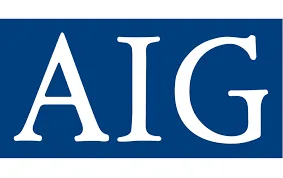What we do
Life Insurance
Life insurance is a financial contract between an individual (the policyholder) and an insurance company. It provides a lump-sum payment, known as the death benefit, to the designated beneficiaries upon the death of the insured person. In return, the policyholder pays regular premiums to the insurance company over the term of the policy or until their death. Life insurance serves multiple purposes and can be valuable for various reasons:
1. Financial Protection for Loved Ones: Life insurance ensures that your beneficiaries, such as your spouse, children, or other dependents, are financially protected in the event of your death. The death benefit can be used to replace lost income, cover living expenses, pay off debts (such as mortgages or loans), fund education costs, or provide an inheritance.
2. Estate Planning: Life insurance can be an essential tool for estate planning, especially for individuals with significant assets. It helps to create an immediate estate for your loved ones, providing liquidity to pay estate taxes, debts, and other expenses without requiring the sale of assets.
3. Business Continuity: Life insurance plays a vital role in business succession planning. If you're a business owner, you can use life insurance to ensure the smooth transition of ownership upon your death. It can provide funds to buy out a deceased partner's share, repay business debts, or sustain the company during the transition period.
4. Debt Coverage: If you have significant debts, such as a mortgage, personal loans, or credit card balances, life insurance can be used to cover those liabilities so that your loved ones are not burdened with them after your passing.
5. Funeral and Final Expenses: Life insurance proceeds can be used to cover funeral costs, medical bills, and other final expenses. It relieves your family of the financial burden during an already difficult time.
6. Supplement Retirement Savings: Certain types of life insurance, such as permanent life insurance with a cash value component, can accumulate cash value over time. This cash value can be accessed during your lifetime to supplement your retirement savings or address other financial needs.
7. Peace of Mind: Life insurance provides peace of mind, knowing that your loved ones will be financially protected in the event of your untimely death. It can help alleviate concerns about their well-being and future financial stability.
When considering life insurance, it's important to assess your specific needs, financial situation, and goals. Factors such as your age, health, income, dependents, and existing insurance coverage should be taken into account to determine the appropriate type and amount of coverage. Consulting with one of our professional brokers can help you make an informed decision tailored to your circumstances.
Types of Life Insurance
Term Life Insurance
Term life insurance is a type of life insurance policy that provides coverage for a specific period or term, typically ranging from 5 to 30 years. Unlike permanent life insurance, such as whole life or universal life insurance, term life insurance does not have a cash value component or investment feature. It is designed to provide pure death benefit protection.
Here are some key features and uses of term life insurance:
1. Death Benefit Protection: The primary purpose of term life insurance is to provide a death benefit to the beneficiaries if the insured person passes away during the term of the policy. The death benefit is a tax-free lump sum paid to the designated beneficiaries, which can be used to replace lost income, pay off debts, cover funeral expenses, or fulfill other financial needs.
2. Affordability: Term life insurance tends to be more affordable compared to permanent life insurance because it offers coverage for a specific period and does not accumulate cash value. The premiums for term policies are generally lower, making it an attractive option for individuals seeking cost-effective life insurance coverage.
3. Flexibility: Term life insurance offers flexibility in terms of coverage duration. You can select a term that aligns with your specific needs and financial obligations. For example, if you have a mortgage or children who will be financially dependent on you for a certain period, you can choose a term that covers that duration.
4. Temporary Needs: Term life insurance is often used to address temporary needs and financial obligations. For instance, if you have young children, a term policy can ensure that they are financially supported until they become self-sufficient. Similarly, if you have outstanding debts with a specific repayment period, such as a mortgage or student loans, a term policy can provide coverage until those debts are paid off.
5. Business Purposes: Term life insurance can be valuable for business owners. It can be used to cover key person insurance, where the business purchases a policy on the life of a key employee or owner to protect against financial loss in the event of their death. Term life insurance can also be used to secure business loans, ensuring that the loan can be repaid if the borrower passes away.
6. Supplement to Permanent Life Insurance: Some individuals use term life insurance as a supplement to their permanent life insurance coverage. They may purchase a term policy to provide additional coverage during periods when their financial responsibilities are higher, such as when they have young children or a mortgage, while maintaining a permanent policy for long-term needs.
It's important to note that term life insurance coverage ends once the specified term expires, and if you want to continue coverage, you will typically need to renew the policy or purchase a new one. When considering term life insurance, our professional brokers will assist you in evaluating your specific needs, financial situation, and the duration of coverage required. It's advisable to compare quotes from different insurance providers to find the best policy that fits your needs and budget.
Whole Life Insurance
Whole life insurance is a type of permanent life insurance that provides coverage for the entire lifetime of the insured person, as long as the premiums are paid. It offers both a death benefit and a cash value component, making it distinct from term life insurance.
Here are the key features and uses of whole life insurance:
1. Death Benefit Protection: Like other life insurance policies, whole life insurance provides a death benefit to the beneficiaries upon the death of the insured person. The death benefit is a tax-free lump sum that can be used to replace lost income, cover funeral expenses, settle debts, or provide an inheritance.
2. Cash Value Accumulation: One of the distinguishing features of whole life insurance is the accumulation of cash value over time. A portion of the premiums paid goes into a cash value account, which grows on a tax-deferred basis. The cash value can be accessed during the insured person's lifetime through policy loans or withdrawals, offering a source of funds for various purposes.
3. Lifetime Coverage: Whole life insurance guarantees coverage for the entire lifetime of the insured person, as long as the premiums are paid as required. This permanence makes it suitable for individuals who want to ensure that their loved ones receive a death benefit regardless of when they pass away.
4. Financial Planning and Wealth Transfer: Whole life insurance can serve as a tool for financial planning and wealth transfer. The cash value component can be used for a range of purposes, such as supplementing retirement income, funding college education, or creating an estate. It can also be used to transfer wealth to the next generation, providing an inheritance or paying estate taxes.
5. Tax Advantages: Whole life insurance offers certain tax advantages. The growth of the cash value is tax-deferred, meaning you do not have to pay taxes on the cash value accumulation as long as it remains within the policy. Additionally, the death benefit is typically received by the beneficiaries income tax-free.
6. Policy Dividends: Some whole life insurance policies are eligible to receive dividends from the insurance company. These dividends can be used in various ways, such as increasing the death benefit, purchasing additional coverage, reducing premiums, or accumulating as cash value.
7. Forced Savings: Whole life insurance can also act as a form of forced savings. The regular premium payments ensure that a portion of your income is set aside for the future, allowing you to build cash value over time. This can be particularly beneficial for individuals who struggle with disciplined saving or prefer a structured approach.
When considering whole life insurance, it's important to carefully evaluate your financial goals, cash flow, and long-term needs. Whole life insurance tends to have higher premiums compared to term life insurance, reflecting the permanent coverage and cash value component. Consulting with one of our professional brokers will help you determine if whole life insurance aligns with your financial objectives and risk tolerance.
Universal Life Insurance
Universal life insurance is a type of permanent life insurance that combines a death benefit with a cash value component. It provides flexibility in premium payments and death benefit amounts, making it distinct from both term life insurance and whole life insurance.
Here are the key features and uses of universal life insurance:
1. Death Benefit Protection: Like other life insurance policies, universal life insurance provides a death benefit to the beneficiaries upon the death of the insured person. The death benefit is a tax-free lump sum that can be used to replace lost income, cover funeral expenses, settle debts, or provide an inheritance.
2. Cash Value Accumulation: Universal life insurance has a cash value component, which distinguishes it from term life insurance. A portion of the premiums paid goes into a cash value account, which accumulates on a tax-deferred basis. The cash value can be accessed during the insured person's lifetime through policy loans or withdrawals, providing a source of funds for various purposes.
3. Flexibility in Premium Payments: Universal life insurance offers flexibility in premium payments. Policyholders can adjust the amount and frequency of their premium payments within certain limits, allowing them to adapt the policy to their changing financial circumstances.
4. Adjustable Death Benefit: Universal life insurance allows policyholders to adjust the death benefit amount within certain limits. This feature can be beneficial in situations where the coverage needs change over time. For example, if you want to increase the death benefit to accommodate a growing family or decrease it to reduce premiums, universal life insurance provides that flexibility.
5. Investment Options: Universal life insurance policies often offer investment options for the cash value component. Policyholders can allocate the cash value to various investment accounts, such as fixed interest accounts, indexed accounts, or variable accounts. This allows the cash value to potentially grow at a higher rate based on the performance of the underlying investments.
6. Tax Advantages: Universal life insurance offers certain tax advantages. The growth of the cash value is tax-deferred, meaning you do not have to pay taxes on the cash value accumulation as long as it remains within the policy. Additionally, the death benefit is typically received by the beneficiary's income tax-free.
7. Estate Planning and Wealth Transfer: Universal life insurance can be used as a tool for estate planning and wealth transfer. It can provide liquidity to pay estate taxes, ensuring that your assets can be passed on to your beneficiaries intact. The cash value component can also be used to create an estate or provide an inheritance.
8. Supplement to Retirement Income: The cash value accumulated in a universal life insurance policy can be accessed during the insured person's lifetime. It can serve as a supplemental source of retirement income, allowing policyholders to supplement their retirement savings and potentially achieve their financial goals.
It's important to carefully evaluate your financial goals, risk tolerance, and long-term needs when considering universal life insurance. The investment component and flexibility come with additional complexity compared to other types of life insurance. Our professional brokers will help you determine if universal life insurance aligns with your financial objectives and provide guidance on policy design and investment options. Universal life Insurance is not for everyone, it does have the highest risk factor of any type of life insurance product. it is very important to have a detailed conversation with your professional broker, before entering into a universal life product.
(517) 923-3233
Phone Number
9630 Graceland Dr.
Belding Mi 48809
jordanbrownnasb@gmail.com
E-mail address






